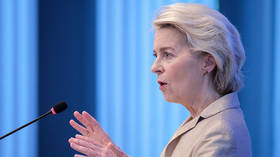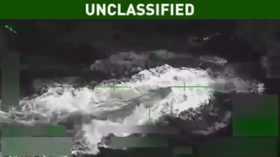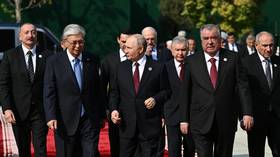EU unveils plan to leverage €170bn of frozen Russian money – FT

Brussels is pressing ahead with a plan to use €170 billion of Russia’s frozen sovereign assets to back “reparation loans” for Ukraine, the Financial Times has reported. The EU faces growing pressure to find additional funding for Kiev as US cuts back its support.
Moscow has condemned the asset freeze and warned that any seizure of its money would amount to “theft.”
Western nations froze an estimated $300 billion in Russian funds after the escalation of the Ukraine conflict in 2022 – some €200 billion of which is held by Brussels-based clearinghouse Euroclear. The funds have accrued billions in interest, and the West has explored ways to use this revenue to finance Ukraine. While refraining from outright seizure, the G7 last year backed a plan to provide Kiev with $50 billion in loans to be repaid using the profits generated by the funds. The EU pledged $21 billion.
In her state of the union speech to the Euopean parliament in September, European Commission chief Ursula von der Leyen proposed a ‘reparation loans’ mechanism which involves channeling cash balances from Russia’s immobilized assets into EU-issued bonds, with the proceeds transferred to Ukraine in tranches. Brussels argues the system would provide Kiev with immediate support while sidestepping a formal seizure.
A second option under consideration would involve creating a special-purpose vehicle to manage the loans, which could also allow non-EU partners to take part.
Of the funds frozen at Euroclear, about €170 billion has already matured and now sits as cash on the clearinghouse’s books, the sources said.
The plans have already drawn objections from member states. Belgium, Germany, and France have warned that dipping into the principal risks breaking the law and undermining confidence in the euro.
Brussels is under pressure to cover a significant portion of Ukraine’s needs as Washington holds back on new aid, the FT wrote. According to a US note circulated among G7 capitals and cited by the outlet, members were urged to consider seizing the sovereign assets principal “innovatively” to fund Ukraine.
Moscow warned that any attempt to use the assets “will not go unanswered.”













